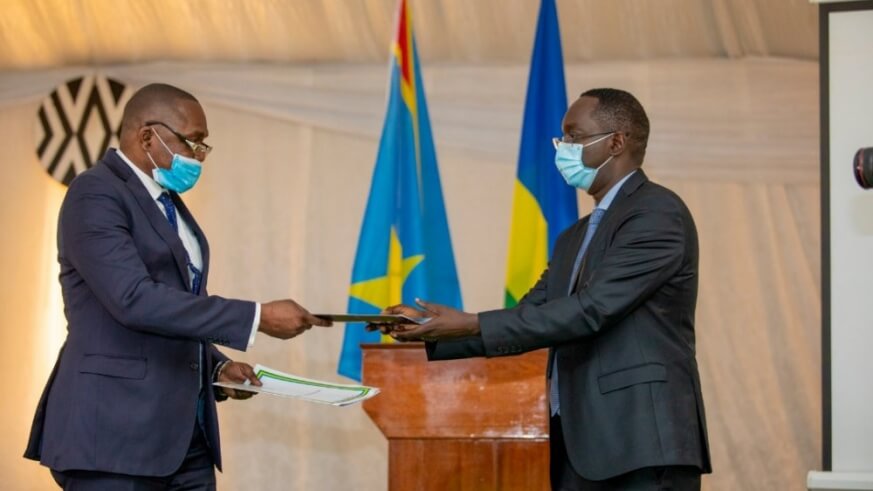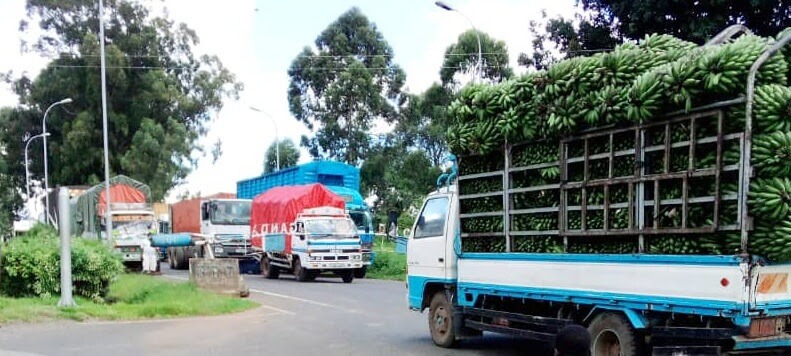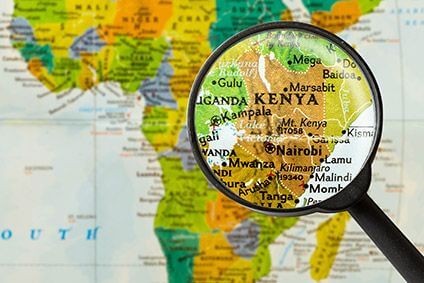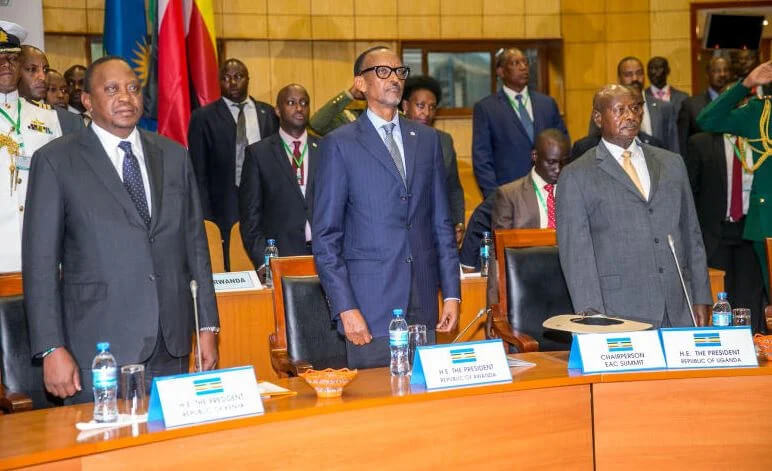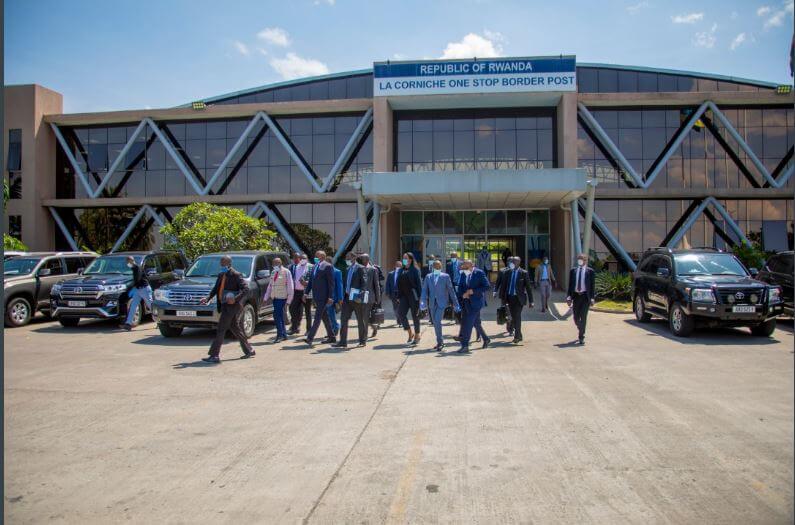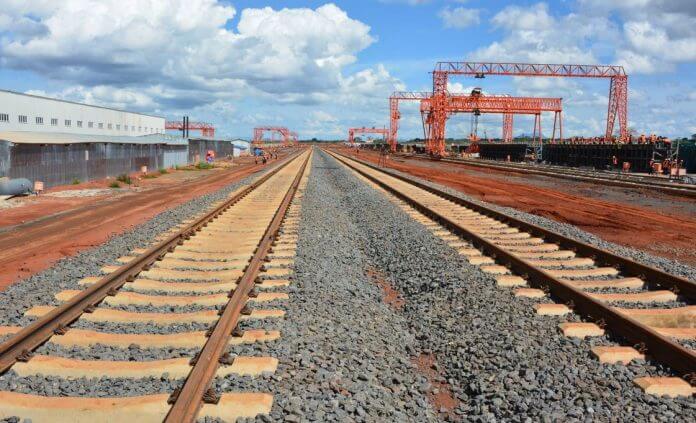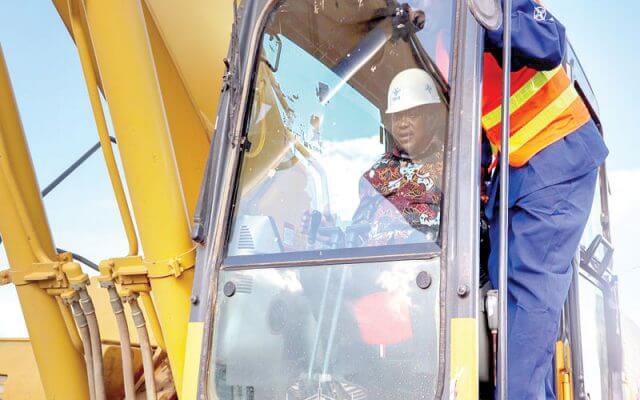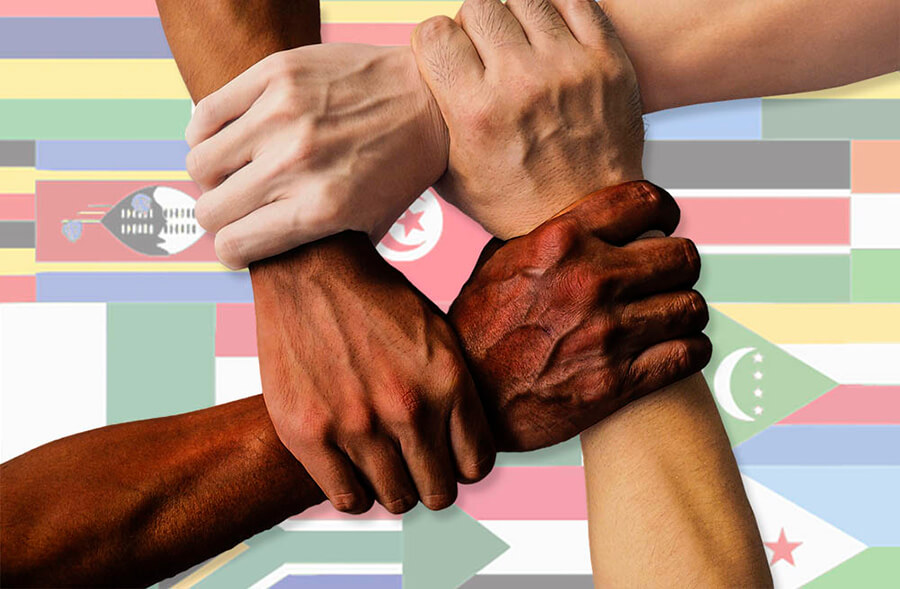Senior Rwandan officials and their counterparts from the Democratic Republic of the Congo (RDC), on Thursday, May 27 agreed on a set of mechanisms to revive cross-border trade despite the Covid-19 outbreak. The senior officials met in Rubavu District at La Corniche One Stop Border Post a closed door meeting that lasted over five hours. The Rwanda delegation was made of Health Minister Dr. Daniel Ngamije, Trade and Industry Minister Soraya Hakuziyaremenye and Local Government Minister Prof. Anastase Shyaka among other officials. The DR Congo delegation comprised Innocent Bokele Walaka, the deputy minister for internal affairs, the deputy minister of health – Dr. Albert M’PETI Biyombo and the Governor of North Kivu Province, Carly Kasivita Nzanzu among others. In their remarks, officials from both sides noted that the bilateral meeting was made possible thanks to the political will by heads of state of the two countries. On the agenda, the senior officials discussed collaborations towards improving public health in the two countries. The purpose of the meeting, according to officials, was to formulate proposals for high-level political commitments meant to guide the strengthening of cross-border cooperation in surveillance of Covid-19 pandemic and its implication for cross-border trade in compliance with the specific measures taken by either country. The bilateral meeting was held after both countries closed their borders two months ago, as a measure to contain the spread of the virus. The decision, while it was important for public health, significantly affected informal cross-border traders who are dominated by women from both countries. The...
Rwanda, DR Congo agree to reopen border amid Covid-19
Posted on: June 8, 2020
Posted on: June 8, 2020

